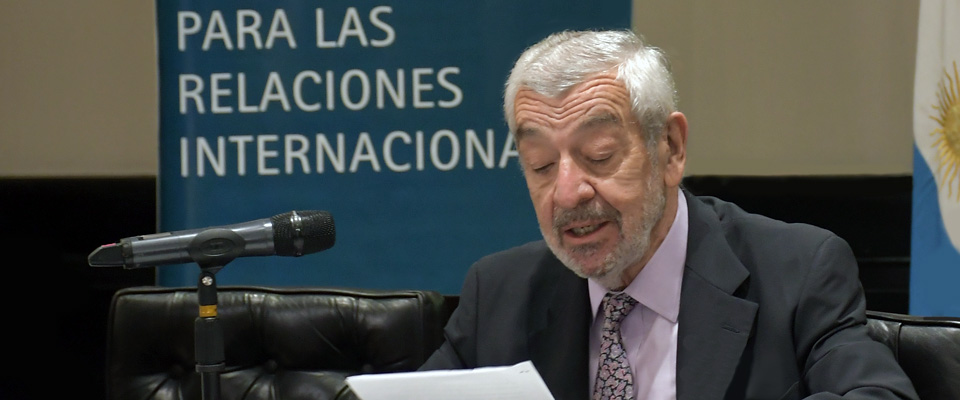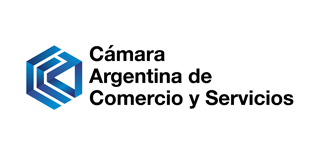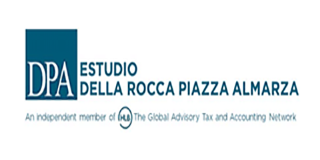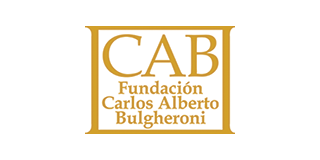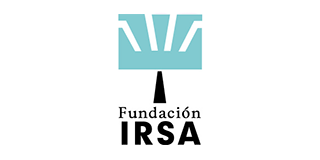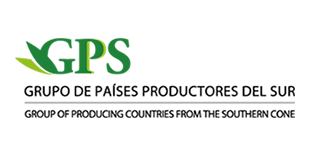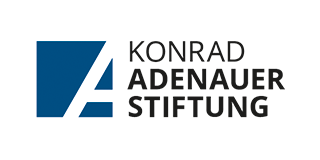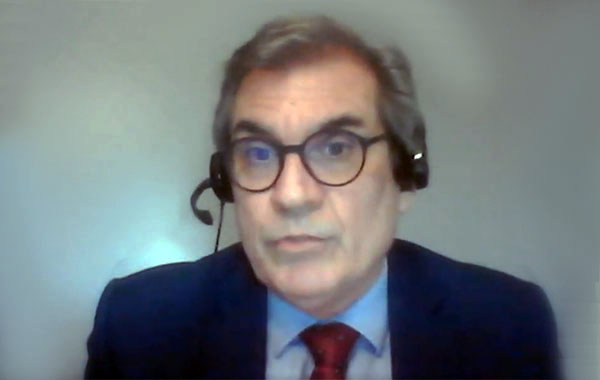
August 12, 2020
Academic meeting under CARI's Global Scenarios Working Group
Written by María Florencia Avena, Volunteer for the Communication Division
Isabella Rocco. Translation of: link
The role of Argentina in the current international context brought together a new virtual academic meeting organized by the Global Scenarios Working Group on August 12th.
The event received participation from CARI's Academic Secretary and Member of the Working Group, Juan Battaleme, who opened the session; Ambassador Darío Celaya Álvarez, who presented the research team, composed of fifteen members; speakers Christian Bonfili, Javier Santander, María Belén Gracia, and Marcia Levaggi. Andrés Schelp, aide to the Academic Secretary, officiated as moderator.
The Working Group organized itself around two main axes for its research. On one hand, from the perspective of the modes of production, which encompasses themes like the future of agriculture, environmental issues, technological innovation, and demographic questions. On the other hand, from the area of Security, Defense, and Strategic Resources. Nonetheless, the COVID-19 pandemic has presented an unprecedented scenario, distinct from any other, impacting different fronts concurrently. Adopting a perspective of governance, is to say, basing research in the analysis of state actors' political agendas and how they have reacted to the crisis.
Christian Bonfili, member of the Political Science and International Studies Department at Torcuato Di Tella University, suggested that the subgroup's research objective was the analyze the current state of the governance system in light of COVID-19 in order to determine the challenges and opportunities they pose to Argentinean action abroad. Some of the main findings pertain to the growing heterogeneity of trends, the expansion of interdependency, and the right of populism and nationalism, but above all the fragmentation of global governance, now deepened by the effects of the pandemic. Faced with this landscape, Bonfili asks: "how should Argentina interpret, evaluate, and respond?"
The next speaker was Javier Santander, Councilor in the National Directorate of Malvinas and South Atlantic Islands of the Ministry of Foreign Affairs, International Trade and Worship who spoke about international security and the prominence that the State and Armed Forces gained in reaction to the pandemic, the latter being—to a greater or lesser extent—the best prepared institution to set up operatives that require an organized and strategic logic. As for the world's visions for security, the idea that COVID-19 is deepening preexisting trends predominates, rather than the idea that it is an opportunity for substantial change.
Regarding the future of production, María Belén Gracia, independent consultant on international economic law, international trade, and regulatory affairs, presented a data survey based on reports from different entities like the World Bank, FMI, OMC, and BID, which foresees a drop in world trade by thirty percent; and an economic downturn of three percent on the same scale. "The rates are comparable to those from the Great Depression," Gracia affirmed. For Argentina, there's an estimated percentage that surpasses forty points in terms of poverty; ten percent of the economy and more than six percent of primary deficit GDP. However, areas with potential for Argentina have been identified, like the growing development of agricultural production (quality foods with high nutritional value in their production process); the development of electronic trade and the digitalization of commercial, educational, and recently, medicinal tasks. Taking into account the progressive diversification of supply sources, "there is a great opportunity for our country to provide value-added goods and services", said the specialist.
Lastly a presentation by Marcia Levaggi, ex-director of Environmental Affairs at the Ministry of Foreign Affairs and Worship, took place, which stressed the importance of not adopting a national position that is locked into dogmatic thinking, but rather that Argentina looks for a narrative that can explain its situation to the world; which is capable of demonstrating good sustainable production practices and that incorporates standards that allow the country to enter new value chains. Levaggi argued that the pandemic has been a major trigger, because it targeted the main claims of the environmental agenda: deforestation, trafficking of animal species and their transport, and the proximity between urban populations and ecosystems.
